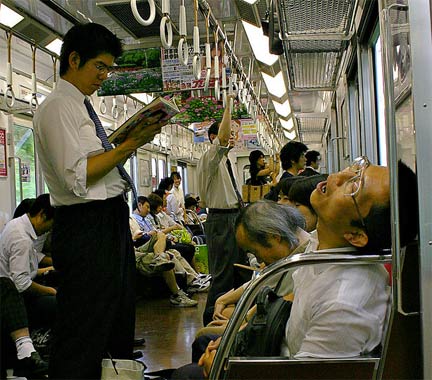The word “salaryman” is a wasei-eigo (lit. “made-in-Japan English”) term referring to a salaried male employee of a company. The word came into use in the Taisho Period (1912-1926) to describe the new professional class of company employees doing jobs we’d think of today as white collar, and in the postwar years these salarymen were responsible for Japan’s economic miracle. The trademark of the salaryman is his conservative dark suit, called a sebiro in Japanese, which probably came from London’s Saville Row region where the most famous men’s clothiers were located at the time. But wearing suits in the summer is hot and uncomfortable, so every year the Japanese government begins a policy called “cool biz” to encourage government employees to dress casually so the air conditioning can be reduced. This year they’re going a step further, introducing “super cool biz” which will allow employees to wear T-shirts, aloha shirts and jeans while they work, as Japan prepares for a difficult summer.

Japan’s slarymen, they make for very entertaining train rides.














